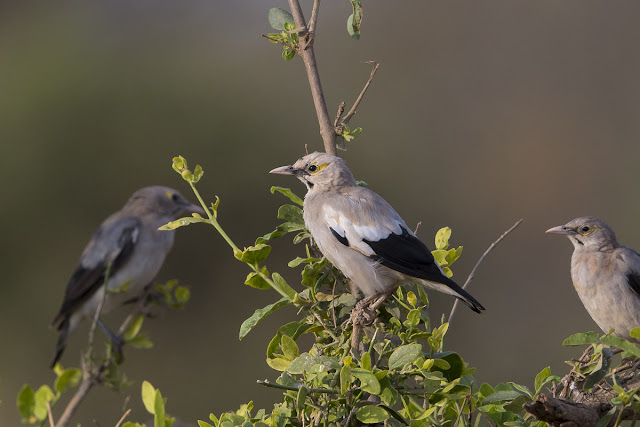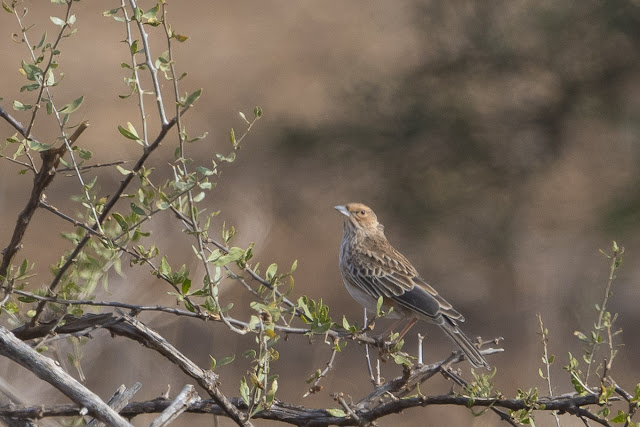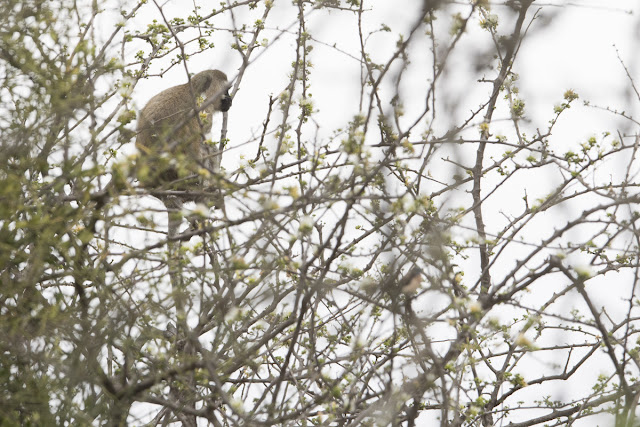Selenkay Conservancy
After flying for quite a few hours from Asia and spending half a day waiting for everyone in the group to meet up in the capital Nairobi, everyone was happy to head toward our first destination- Selenkay Conservancy. Selenkay is located on the outskirt of Amboseli National Park and is about a 2-hour flight from Nairobi if I remember correctly.
A conservancy rented land from the locals, the Masai use only some parts of it for raising their animals, in turn, almost all of the people who work there are from the villages nearby.
As it was dry season during July and August, everything is pretty dry and dusty. Most of the woody plants have hard thorns so it is not a good idea to wander off-road.
Occasional termite mounds are a treat to see. They are not on every cornor, but there are still more of them than I expected. You may not be able to tell the size of things in the photos so you'd have to trust me the mounds are not small.
The quite-developed Game-watcher campsite has roofs for the tents, so your cameras don't get cooked during the hotter hours of the day. The taller tent of the left is shower and there is also flushing toilet!
Dining area. Really glad the big tree doesn't shed its thorns into my soup.
It is time for Safari after dropping off the unnecessaries. Of course, all birds are welcome.
First up is the Helmeted Guineafowl. They roam the open grounds in large flocks of dozens to more than a hundred.
Helmeted Guineafowl
they also happen to be on the menu of many animals so their feathers are not hard to find on the ground.
Crested Francolin
Crowned Lapwing
Their range cover basically all of the places we went to so they are on almost all of my bird checklists.
Fischer's Starling
White-bellied Go-away-bird
they seem to fly away when we hit the brakes.
Verreaux's Eagle Owl
First owl of the trip. And there were no more owl sightings after this exciting find.
Pygmy Mongoose
Lesser Kudu
Kirk's Dikdik
African (Bush) Elephants
Opportunities to watch large animals are always exciting.
Probably don't need to tell you what are those in the next pictures, but I'm going to.
Lion
they can be difficult to spot crouching low in the bushes.
Understandably, they prefer to move only during the cooler times of the day.
a yawn
a yawn didn't stay like that for long.
The pride moving out at dusk.
Here's the gate between us everything outside.
July 24, 2017
Selenkay Conservancy
Let's start with the bush chickens of the day.
Helmeted Guineafowl
Yellow-necked Francolin
new chicken
Black-faced Sandgrouse
thought thse look like grouse, but they are actually placed next to pigeons in the field guide.
Female is more dull.
The male's face is more decorated.
Emerald-spotted Wood-Dove
Mourning Collared-Dove
Woolly-necked Stork
a stork on dry land during dry season, this bird surprised our guide a little.
Double-banded Courser
Buff-crested Bustard
Spotted Thick-knee
Seeing Thick-knees reminds me of a trip to Sri Lanka a few years back.
Hamerkop
monotypic family, the head looks unique, but in flight it reminds me of raptors.
Eastern Chanting-Goshawk
Common Bulbul
Fischer's Starling
Wattled Starling
Fork-tailed Drongo
Long-tailed Fiscal
Northern Pied-Babbler
Red-backed Scrub-Robin
Red-cheeked Cordonbleu
comes to the camp to drink water from a puddle.
Rosy-patched Bushshrike
One of the many something shrike of the trip.
White-browed Sparrow-Weaver
One of the many something weaver.
White-headed Buffalo-Weaver
White-browed Coucal
White-bellied Go-away-bird
White-headed Mousebird
and some I-don't-knows
Vervet Monkey
Olive Baboon
looks like they do need the thick skin on their butt because they spend a lot of time sitting.
Lesser Kudu
Grant's Gazelle
the ones without horns have black flanks
Grant's (left) and Thompson's Gazelle(right)
Grant's have a white patch aboe the tail.
Gerenuk
I think there are no records of Gerenuks drinking water, they get it from their food.
They look like the deer god in Princess Mononoke.
Eland
Zebra
Giraffe
Those thorns
think the closer one is a different subspecies.
I think these are Cape Hare
Masai and Campfire








































































No comments:
Post a Comment